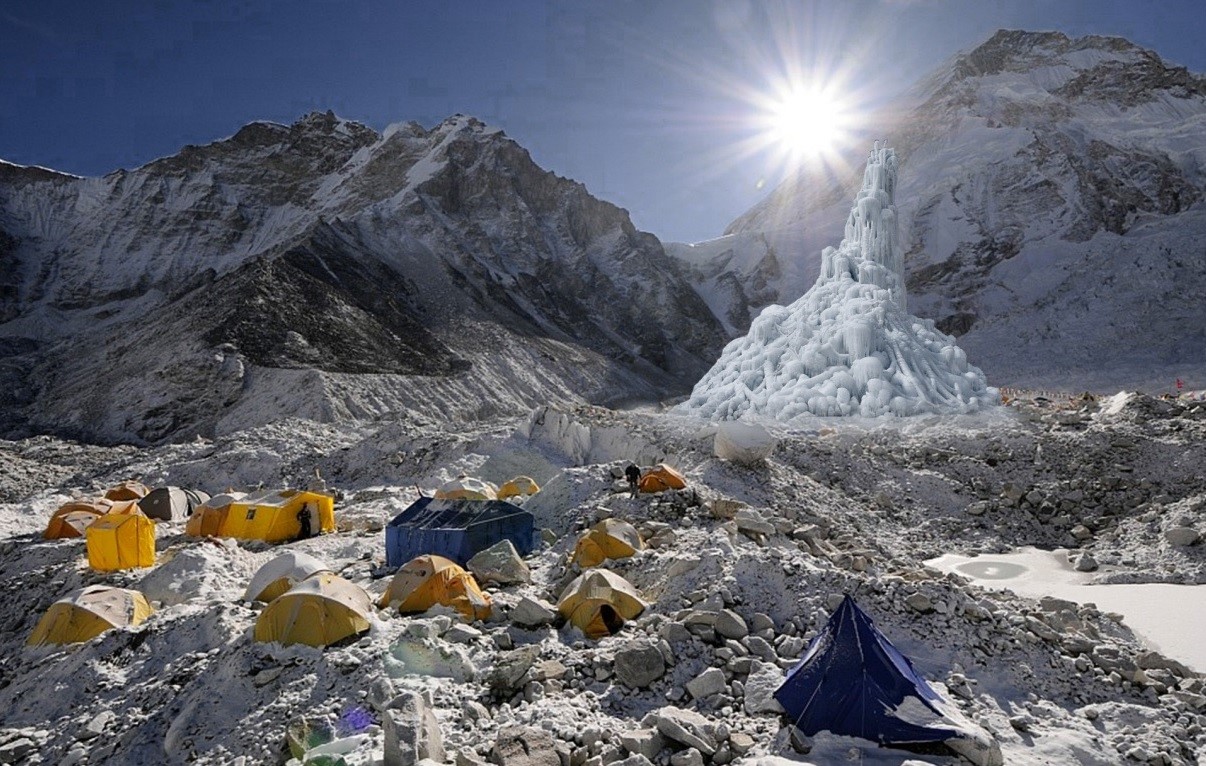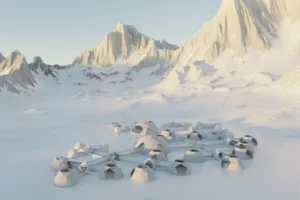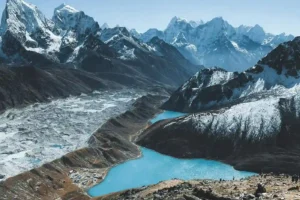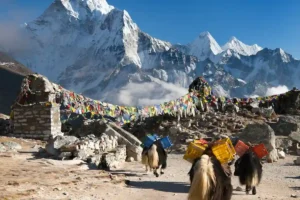
Five ways to use renewable energy at Everest Base Camp
Measures such as using renewable energy sources, installing efficient lighting and heating systems, and the collecting and treating of rainwater can be implemented in the Everest Base Camp. In addition, responsible energy and water consumption practices should be promoted among staff and visitors.
We have already talked before about energy consumption at Everest Base Camp, based on research we have carried out from The NeverRest Project. We now summarize some of the solutions we are developing.
1. UTILIZE RENEWABLE ENERGY SOURCES
Implement the use of renewable energy sources, such as solar panels to reduce reliance on fossil fuels. Install energy-efficient lighting and heating systems to minimize energy consumption and decrease greenhouse gas emissions. Promote responsible energy consumption practices among staff, emphasizing the importance of turning off lights and equipment when not in use.

The Everest Base Camp.
2. DEPLOYMENT OF PHOTOVOLTAIC INSTALLATIONS PER OPERATOR
Establish photovoltaic (solar panel) installations for each operating unit to generate clean, on-site electricity. Use modular system of flexible solar panels that allow to be self-sufficient at Everest Base Camp. Reduce as much as possible the use of kerosene and gas and replace it with solar power.
3. IMPLEMENT INDIVIDUAL BATTERY SYSTEMS
Install individual battery systems alongside renewable energy sources, such as solar panels, to store excess energy. These batteries can then provide power during periods of low energy generation or in emergencies, ensuring a reliable and sustainable energy supply.

SUNMIT, the prototype developed by Marina Guzman from Elisava Barcelona School of Design and Engineering for The NeverRest Project.
4. RAINWATER COLLECTION AND TREATMENT
Establish a rainwater collection and treatment system. Store the collected rainwater in tanks or cisterns. These storage units should be designed to prevent contamination and algae growth. Additionally, treatment mechanisms such as UV sterilization or chlorination can be integrated to ensure the water is safe for various non-potable uses.
5. ARTIFICIAL GLACIER CREATION FOR GLACIER PRESERVATION
Develop an artificial glacier, a traditional ice storage technique, to store winter water runoff as ice throughout the year. We are working in one prototype: The Ice Spring.

The Ice Spring, in a simulation in the Everest Base Camp.
To improve the situation, from The NeverRest Project we have created a proposal for the first sustainable Base Camp for Everest. Find out here.



